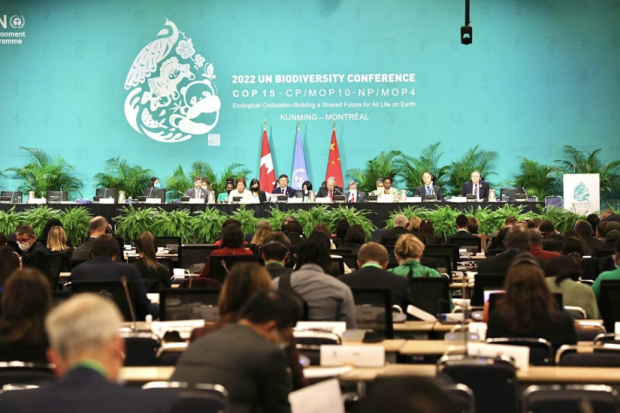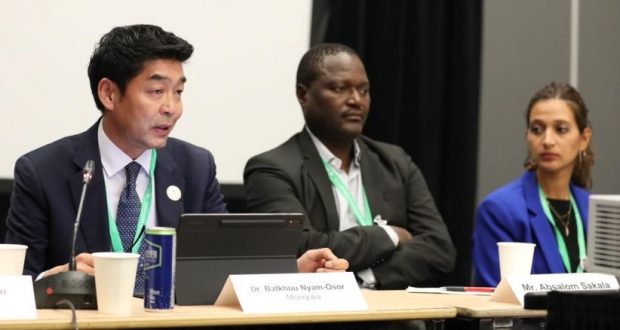Mongolia second Asian country to join Nature for Health Initiative

The conference in progress (Montsame)
ULAANBAATAR: Mongolia has become one of the six countries to join the Nature for Health Initiative (N4H) to advance global efforts in upstream pandemic prevention.
Environment and Green Development Advisor to the President of Mongolia N. Batkhuu participated in the side event at the CBD COP 15 in Montreal to introduce its first partner countries: Ecuador, Ghana, Mongolia, Rwanda, Vietnam, and Zambia.
These Country Partners will work with the N4H Consortium Partners, leading UN agencies, intergovernmental organizations, and civil society groups in the field of environment and health, to reduce the risk of pandemics through upstream prevention of zoonotic disease spillover, Mongolian news agency Montsame reports.
Zoonotic diseases such as SARS, Ebola, and Zika are emerging as a result of environmental degradation, climate change, land use changes, biodiversity loss, animal husbandry, and wildlife trade and consumption.
Around 75% of new human infectious diseases originate with animals and then spill over into humans and this figure is increasing due to anthropogenic pressures.
The human suffering and economic cost of pandemics are enormous: COVID-19 has already caused over 6.5 million deaths and cost the global economy $13.5 trillion. The price of prevention is estimated to be just a small fraction of this cost – at most 1%.
During the side event, countries discussed how prevention can be achieved by investing in the upstream environmental drivers of zoonotic pandemics, stopping them from emerging in the first place.
N4H and its Country Partners explored how to overcome potential barriers and advance the post-2020 global biodiversity framework currently being negotiated under the auspices of CBD COP 15.

Batkhuu at the conference (Montsame)
Within the framework of the N4H multi-partner trust fund, the Ministry of Environment and Tourism (Mongolia) will focus on improving the coordination between the environmental, agricultural, veterinary, and human health sectors, and early detection, prevention, and response to diseases that can be transmitted from animals to humans.
Mongolia will start implementing this Initiative in 2023 in cooperation with the Wildlife Conservation Society (WCS) and the preventative “One Health”.
The 15th meeting of the Conference of the Parties (COP15) (Part Two) to the Convention on Biological Diversity, the 10th Meeting of the Conference of the Parties Serving as the Meeting of the Parties to the Cartagena Protocol on Biosafety (CP-MOP10) (Part Two), and the Fourth Meeting of the Conference of the Parties Serving as the Meeting of the Parties to the Nagoya Protocol on Access to Genetic Resources and Benefit-Sharing (NP-MOP4) (Part Two) were held in Montréal, Quebec, the seat of the UN CBD Secretariat.
Around18,000 representatives from more than 180 countries participated in the 15th meeting of the Conference of the Parties to the Convention on Biological Diversity.
Montsame

























































